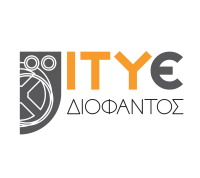
Directorate of Infrastructures and Networks
Computer Technology Institute and Press "Diophantus"
Giannopoulos O. Konstantinos
| Education: |
Post-doctoral research position in Computer Networks Laboratory (University of Patras) for the “Design of Architectures for Novel Almost All-Optical Switching Nodes” |
| e-mail: | This email address is being protected from spambots. You need JavaScript enabled to view it. |
Dr. Konstantinos Yiannopoulos was born in Tripoli, Arcadia in 1977. He received the Diploma and PhD in Electrical and Computer Engineering at 2000 and 2004, respectively, from the School of Electrical and Computer Engineering of the National Technical University of Athens.
Dr. Yiannopoulos has worked as a graduate and post-doctoral researcher in the field of Optical Communication Networks, emphasizing on optical packet and burst switching network architectures, buffering requirements of optical architectures, optical buffer implementations and end-to-end network provisioning protocols. He was with the Photonics Communications Research Laboratory (National Technical University of Athens) from 2000 to 2004, conducting research towards his PhD Thesis titled “Ultra-High-Speed Circuits for Digital Optical Networks.” In 2005 Dr. Yiannopoulos received a post-doctoral research position in Computer Networks Laboratory (University of Patras) for the “Design of Architectures for Novel Almost All-Optical Switching Nodes”. In 2007 Dr. Yiannopoulos joined the Networking Technologies Sector (Computer Technology Institute and Press "Diophantus"), where he has worked between 2007-2010 as a senior researcher and engineer.
Dr. Yiannopoulos is currently a Lecturer in Optical Wireless Networks at the University of Peloponnese, Department of Informatics and Telecommunications. Dr. Yiannopoulos has more than 30 published papers in international journals and 25 published papers in international conferences. His research related work has been granted with the international awards “IEEE/LEOS Graduate Student Fellowship Program 2004,” “Chorafas Foundation” and “IEEE Wireless Communications and Networking Conference 2014 Best Paper Award,” and has received more than 400 independent citations.